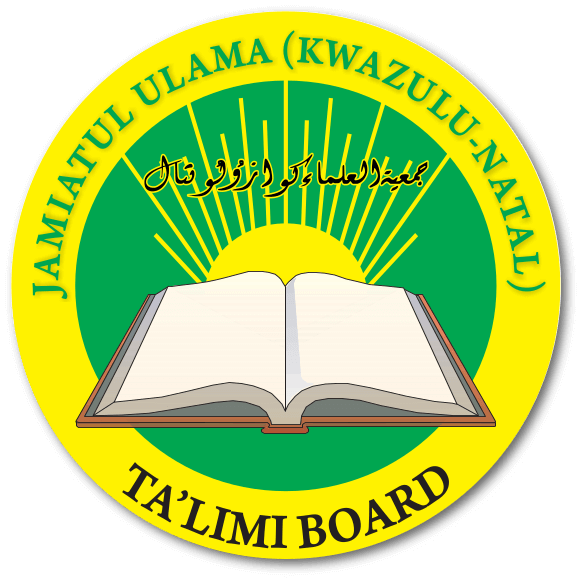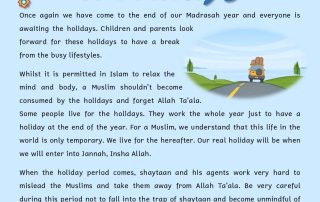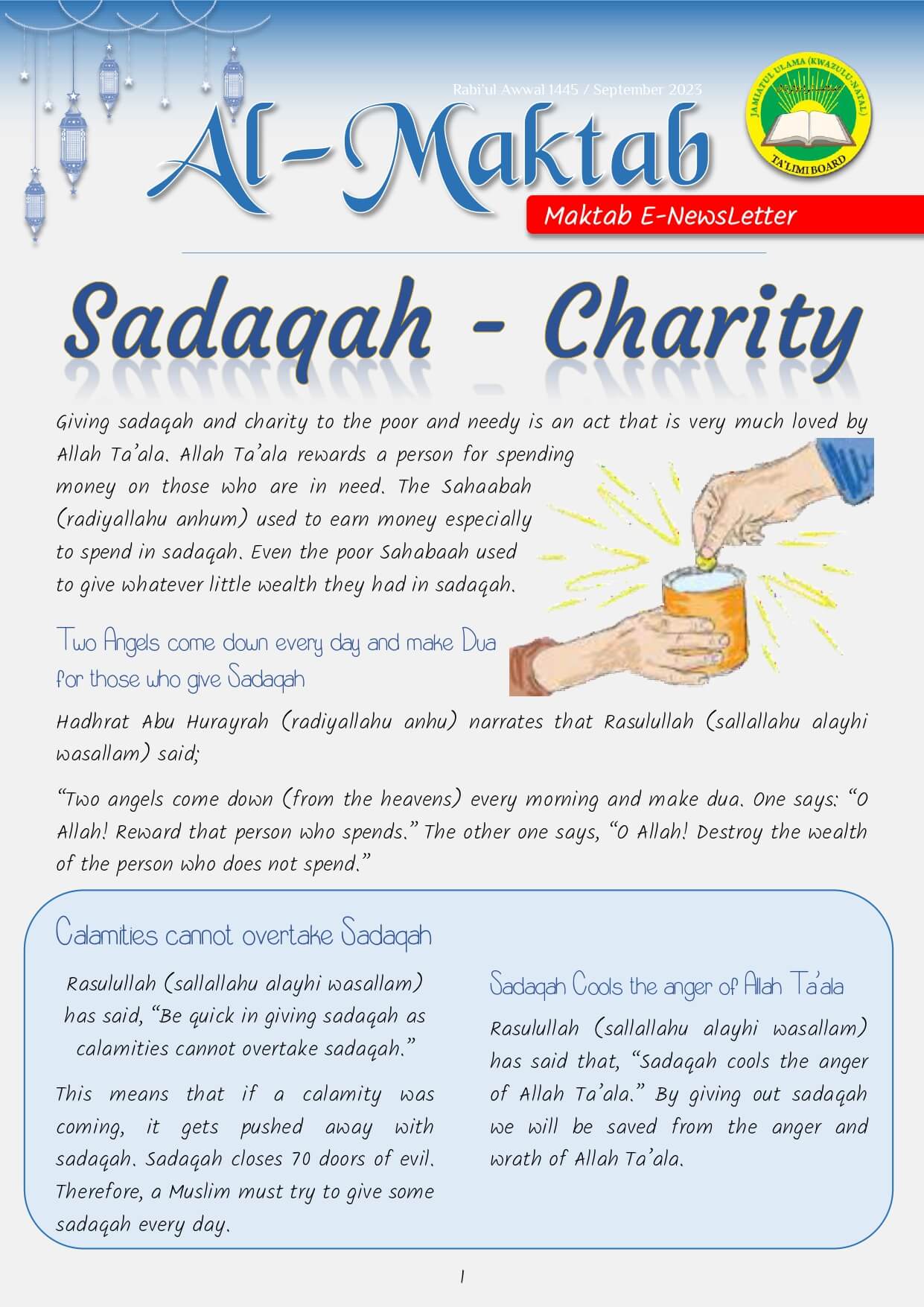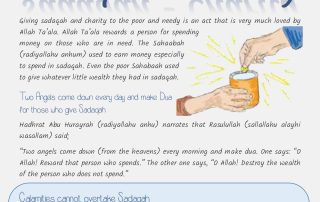Tarbiyat Series_Issue #1
Muhtaram Ulama / Muallimaat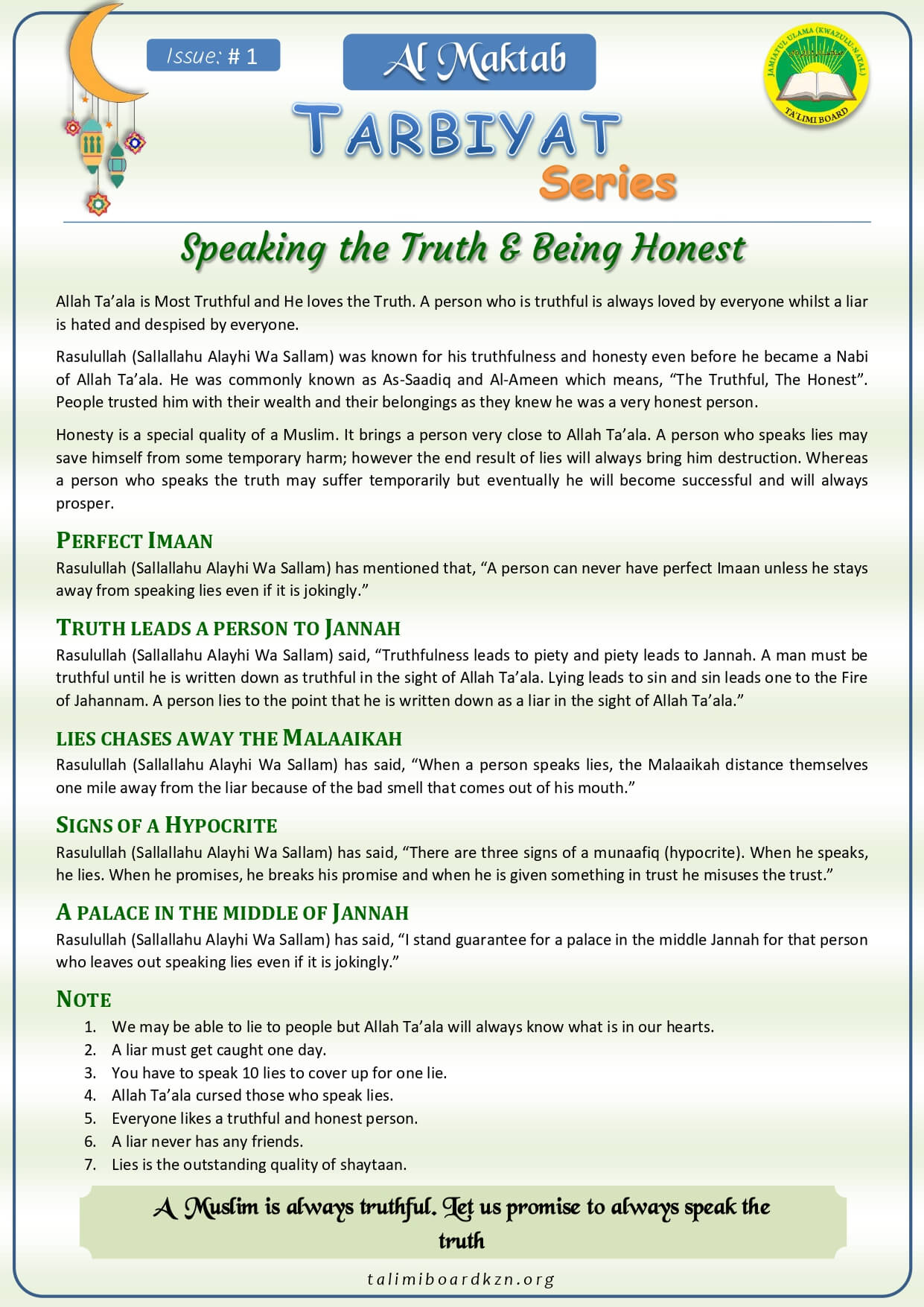
Assalaamu alaykum wa rahmatullahi wa barakaatuhu
May Allah Ta’ala accept our feeble efforts in imparting the knowledge of Deen to the children of the Ummah.
Together with ta’leem it is important for us to also make the tarbiyat of our pupils. Tarbiyat refers to correcting them, guiding them and making their islaah.
In this regard the Ta’limi Board (KZN) has received many requests from teachers to prepare some topics discussing important aspects of tarbiyat.
Alhamdulillah by the grace of Allah Ta’ala the first edition has been prepared.
Topic: Speaking the truth and being honest.
It has been noticed that lies has become very common in Muslims. Truthfulness which was the hallmark of a Muslim has become very rare. Rasulullah (sallallahu alayhi wasallam) was known as As-Saadiq (The Truthful) Al-Ameen (The Honest).
Hence, let us try to the best of our ability to instill truthfulness and honesty in ourselves as well as the children in our classes.
This edition discusses some Ahaadith and important points on honesty which should be discussed with the children in our classes.
Insha Allah we hope in this way to pass on the wonderful teachings of Rasulullah (salallahu alayhi wasallam) to the Ummah and instill truthfulness and honesty in our own lives.
May Allah Ta’ala grant us all the taufeeq
Muhtaram Moulana / Apa
Assalaamu alaykum wa rahmatullahi wa barakaatuhu
Alhamdulillah, by the grace of Allah Ta’ala, we have entered the final term of our Madrasah year. May Allah Ta’ala accept our broken efforts and crown them with qabuliyat (acceptance).
Before commencing with Madrasah, let us try our best to plan out our work for the term so that we are ready for the final exams and can easily round up our work for the year. In English there is a saying that goes;
If you fail to plan, you plan to fail
Please take note of the following;
1. Tuhfatul Banaat / Tuhfatush Shabaab exams: This exam will take place on the 25 October Insha Allah. Those maktabs that need scripts for the exams should please contact the principal or Supervisor of the Madrasah.
2. Al-Maktab Newsletter: The last edition of the Al-Maktab newsletter was on Sadaqah. Please discuss the newsletter with the pupils and encourage them to give out sadaqah especially now with the Palestinian crisis we should try and give out some sadaqah daily. The newsletter has been attached.
3. Practicals and Sunnats Exams: Al-hamdulillah the practical and sunnats exams were conducted last term. Please check if there were any weaknesses and try to improve on the same especially the wudhu and the salaah of the pupils.
4. Rounding up of the syllabus: Try to round up whatever is left of the syllabus so that revision for the final exams can commence ASAP.
5. Final Exams: The final exams will commence in the second week of November insha Allah. The dates for the oral exam will be sent out shortly. The dates for the written exams are as follows:
Fiqh: 22 November
History: 29 November
Aqaaid: 5 December
Maktabs will close on Friday 8 December Insha Allah.
6. Revision program: Plan out a proper program for revision of Qaidah, Qur-aan, Surahs, Duas, Hadeeth, Fiqh, Aqaaid and History. This program must be written out and given to the children. Contact the parents to also assist in completing the revision program.
A special request to make dua for our Palestinian brothers and sisters as well as all the Muslims around the world.
May Allah Ta’ala bless us all and be pleased with us
Was Salaam
